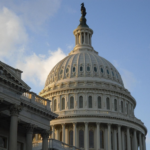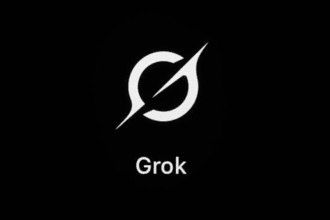President Donald Trump’s decision to approve a ban on TikTok stemmed from concerns over country-wide protection. U.S. Officials argued that TikTok, owned via Chinese company ByteDance, could proportion touchy personal facts with the Chinese government, potentially compromising country-wide safety. This claim became fueled by the broader geopolitical tensions between the U.S. And China, which include disputes over change and era dominance. Trump’s government order signaled a decisive step to cut down what his administration regarded as a digital chance for American privateness and sovereignty.
Trump also emphasized the want for an American enterprise to manipulate TikTok’s U.S. Operations. This brought about negotiations regarding agencies like Oracle and Walmart, which were proposed as capability stakeholders to make sure that consumer facts remain within the United States. Despite those efforts, the approval of the ban reflects the administration’s hardline stance on proscribing foreign effects in essential tech infrastructure. Many specialists see this move as a part of a larger approach to reshape the global era landscape in choice of U.S.-primarily based agencies.
The Trump management’s method additionally aimed to cope with a developing wave of public and political pressure to adjust tech companies’ activities, especially those owned through overseas entities. This decision served as a caution to other systems and strengthened the government’s purpose to prioritize countrywide safety over enterprise hobbies when necessary.
What Does the Ban Mean for TikTok Users?
For millions of TikTok customers inside the United States, the ban introduces uncertainty about the platform’s availability. TikTok has become a cultural phenomenon, particularly among more youthful customers, with its quick-form motion pictures riding developments, amusement, and even political discourse. If the ban is enforced, customers might also lose access to their money owed, content material, and connections built on the platform.
Additionally, content material creators who depend on TikTok for their livelihoods face capability economic losses. Many influencers and small businesses use TikTok as an advertising and marketing tool to attain audiences, and the ban may disrupt their potential to generate earnings. The ripple effects of the ban can also affect advertisers and types that have closely invested in TikTok’s precise consumer engagement. The potential loss of a notably engaged target audience poses challenges for those stakeholders, who may be pressured to shift their techniques to opportunity systems like Instagram Reels, YouTube Shorts, or Snapchat Spotlight.
For everyday users, the emotional impact of losing a platform that fosters creativity, social interplay, and community cannot be disregarded. Many customers have expressed frustration and unhappiness at the possibility of dropping an app that has come to be a crucial part of their daily lives. The uncertainty additionally increases questions about the quantity to which governments should regulate virtual structures and the capacity for overreach in such choices.
How Will the Ban Impact TikTok's Future?
TikTok’s future within the U.S. Remains unsure, with capability outcomes ranging from a complete shutdown to a restructuring of its possession. ByteDance has explored numerous strategies to comply with U.S. Needs, along with selling TikTok’s U.S. Operations to American groups. However, such negotiations have confronted delays and prison hurdles. Despite those challenges, ByteDance has constantly expressed a willingness to discover a decision that satisfies all events.
Beyond possession adjustments, TikTok’s global popularity should go through. The platform’s association with facts and safety worries may lead other international locations to impose comparable regulations or bans. Additionally, TikTok’s consumer base and marketplace proportion should shrink if opportunity platforms capitalize on the ban to attract customers. Competitors are already stepping up their efforts to fill the void that a TikTok ban may create, with sizable investments in features designed to replicate TikTok’s particular attraction.
While TikTok’s modern set of rules and content material network had been key to its achievement, those blessings won’t be sufficient to counteract the challenges posed by way of regulatory scrutiny and aggressive pressures. The platform’s ability to evolve its commercial enterprise version and deal with worldwide worries approximately information and privateness may be crucial in figuring out its lengthy-term viability.
Can TikTok Overcome Legal and Regulatory Challenges?
Despite the worrying situations, TikTok has proven resilience inside the face of adversity.The platform’s criminal group has filed complaints tough the ban, arguing that it violates constitutional rights and lacks sufficient proof to substantiate claims of safety threats. Additionally, TikTok’s reputation amongst U.S. Customers may want to provide leverage in negotiations, as public backlash in opposition to the ban may impact policymakers.
Moreover, TikTok’s capacity to innovate and adapt could play a critical position in its survival. The business enterprise has applied measures to deal with safety worries, such as organizing transparency centers and pledging to save U.S. Consumer information on home servers. These efforts intend to rebuild belief and exhibit compliance with regulatory requirements.
TikTok has also invested in outreach efforts to highlight the superb impact it has had on communities, organizations, and creators. By emphasizing its position as a cultural and financial motive force, TikTok hopes to construct public support and toughen its case in opposition to restrictive measures. However, the platform’s destiny will rely heavily on its ability to navigate the complicated intersection of era, politics, and public opinion.
What Are the Legal Challenges of the Ban?
The TikTok ban has sparked a chain of felony demanding situations, with ByteDance and TikTok’s criminal teams arguing that the govt order violates due manner and First Amendment rights. They contend that the ban disproportionately objectives the platform without supplying concrete evidence of country-wide protection risks.
Legal professionals have highlighted the complexities of implementing this sort of ban, especially in the absence of clear rules governing facts regarding privateness and overseas-owned tech groups. The case has also raised questions about the boundaries of presidential authority and the role of courts in balancing national safety worries with constitutional protections.
Additionally, the ban’s enforcement could face logistical challenges, as limiting access to a widely used digital platform requires cooperation from app shops and net provider carriers. This increases issues about the wider implications of regulating online platforms and the ability for unintended consequences, together with stifling innovation or setting precedents for destiny restrictions.
The final results of these criminal battles will set an enormous precedent for how governments can alter era groups, mainly people with worldwide ties. For now, TikTok’s potential to counter those demanding situations stays a vital aspect in its combat to remain operational in the U.S.
Conclusion
President Trump’s approval of the TikTok ban has set the level for a contentious conflict over the platform’s destiny. While the choice underscores the management’s recognition of national protection, it additionally raises tremendous questions about records’ privateness, loose speech, and the function of worldwide technology organizations. For TikTok customers, creators, and stakeholders, the uncertainty surrounding the ban highlights the want for obvious and balanced answers that deal with safety concerns without compromising innovation and connectivity.
What’s Next for Ohio State?
With the 2025 name in hand, Ohio State is poised for continued success. Their coaching staff and recruitment techniques ensure they remain competitive within the coming seasons. The Buckeyes have their attractions set on protecting their name and preserving their reputation as one of the excellent teams in college football.
Conclusion: How Ohio State Secured Their 2025 Championship Win?
Ohio State’s 2025 National Championship win is more than simply every other identity—it’s a testament to their legacy of excellence. Their exciting victory against Notre Dame showcased the great of college soccer: talent, determination, and teamwork.
As they appear to the destiny, Ohio State remains a symbol of what it manner to compete at the very best level. This championship isn’t only a victory for the Buckeyes—it’s a party of their enduring legacy in university football.








